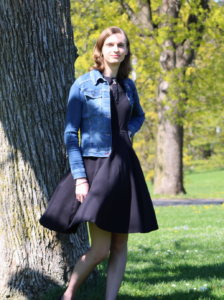News
Meet the Fellows: 2020 Newcombe Fellow Charlotte Amelia Rossler
Charlotte Amelia Rossler
Race Science on Tour: Instructing Publics in Provincial Britain, 1830–1870
 Each year, Citizens & Scholars invites new Fellows to submit a brief story introducing themselves and/or their work. This story is from 2020 Newcombe Fellow Charlotte Amelia Rossler. Cody is a doctoral candidate in history at Stony Brook University whose dissertation examines how the popularization of scientific racism impacted British Victorian ideas of race, identity, and difference, and their continuing legacies.
Each year, Citizens & Scholars invites new Fellows to submit a brief story introducing themselves and/or their work. This story is from 2020 Newcombe Fellow Charlotte Amelia Rossler. Cody is a doctoral candidate in history at Stony Brook University whose dissertation examines how the popularization of scientific racism impacted British Victorian ideas of race, identity, and difference, and their continuing legacies.
Throughout my early life, I idolized the scientific method and the promise of objective knowledge progressively
undoing ignorance and inequity. However, this belief was shaken by the time I enrolled in college as I had to confront not just the historical misuses and mistakes of science—which I had up until then dismissed as the ignorance of the past—but also the continuing injustices which crop up in the name of science.
My dissertation topic emerges out of my concern regarding the current redeployment and reinvigoration of scientific racism by those who seek to counter racial justice. I explore how such ideas were popularized, since many of these attempts to legitimize racial inequality are aimed at the general public, even if some do take place within scientific circles. I am researching how the popularization of scientific racism took place during its development in the mid-nineteenth century. I examine England, with its worldwide empire, in order to evaluate and understand the methods by which scientific racism sought to legitimize both the colonial order and scientific racists’ own claims to scientific knowledge-making. This popularization complicated and opposed abolitionist claims of racial equality and sought to undermine the achievements and humanity of Victorian people of color.
My hope is that my project, even though it is centered on the past, can more easily combat scientific racism’s current revival by highlighting its origins and legacies. Understanding that all knowledge is produced by a society rife with inequalities and injustice helps us point out when new knowledge just so happens to reproduce those same injustices. By addressing the legitimacy of scientific racism for many Victorians, we can challenge problematic ideas of race which still permeate science and our larger society.

